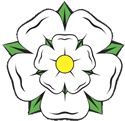 |
||||||||||||||
|
|
||||||||||||||
Course 2 – Stool or Table Construction Course Schedules
Course DescriptionThis is a ‘starting point’ course and is very similar to Course 1 - Frame Construction. However, this course is more demanding, there is more work to do, and more components to shape and fit. The aim of the course is to explore the construction and design of a table with four legs in a square or rectangular arrangement. This traditional order of construction calls for mitred mortise and tenon joints for the upper rails, where they join the legs. Lower rails may be added to the structure. The legs and table top are made from solid wood. A review of sharpening techniques will be concurrent with practice samples of the joinery required by this project. For example, a sample may be an exact model of the corner of the table frame - a square leg or post, mortised to accept the two mitred tenons of the rails. Work on the table itself will begin when wood has been chosen and size and proportions have been decided. Full size drawings for the recommended structures will be available for reference. The student, in consultation with the teacher, will decide the shape of the legs and the top. Course Content
The cost of all materials (wood, glue, abrasive paper, finish
coatings, hardware |
||||||||||||||
| courses : tools : school : principal teacher : gallery : home | ||||||||||||||
|
